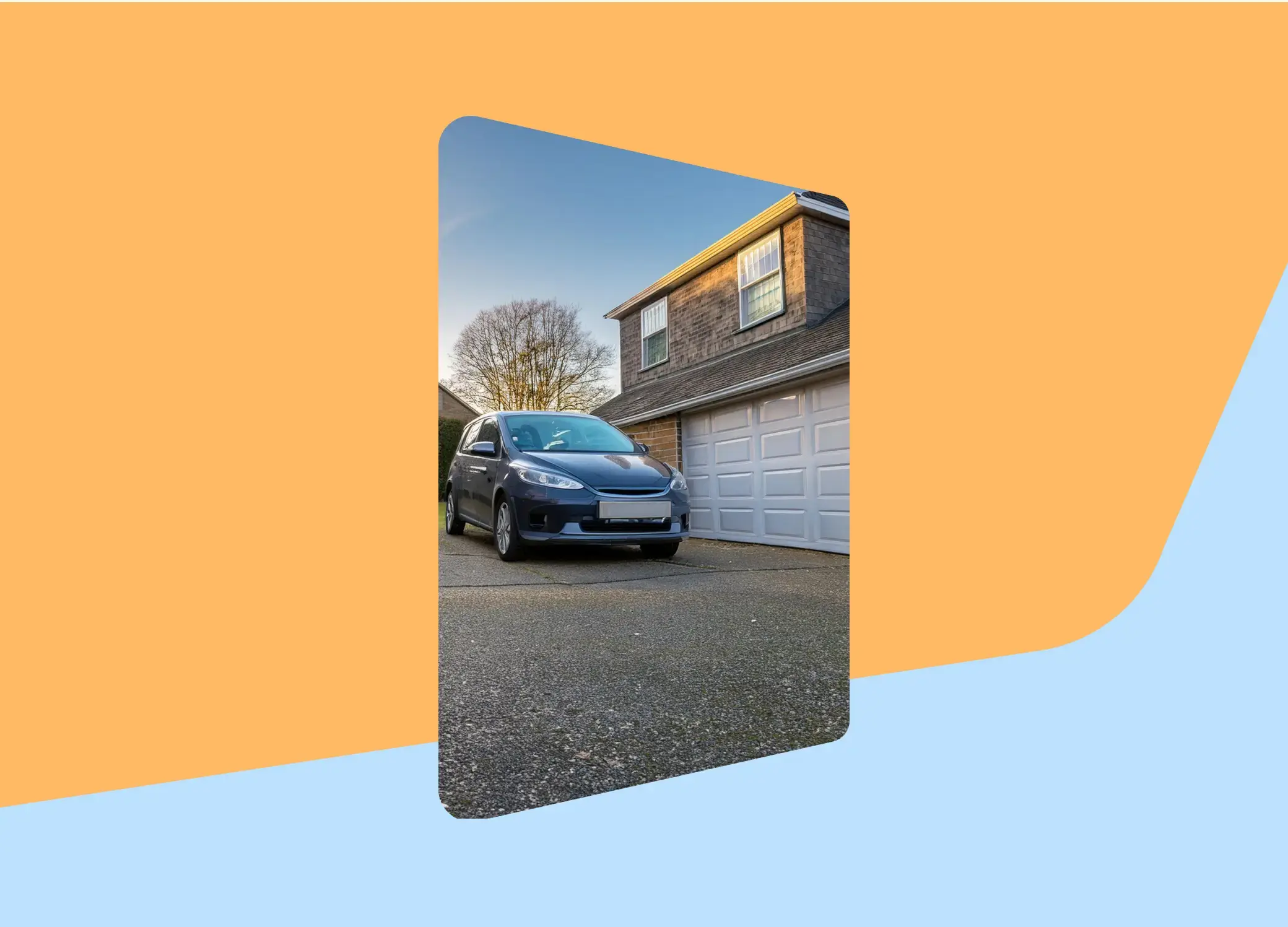- Carmoola
- Blog
- Car Finance
- What are the rules and regulations around car finance?
- 🗞 Car Finance
- Last updated: Apr 9, 2025
- 8 Min Read
What are the rules and regulations around car finance?
Written by

Verified by


See how much you can borrow in 60 seconds
| Representative Example | |
|---|---|
| Loan amount | £10,000 |
| Interest rate | 13.9% APR |
| 54 payments of | £246 |
| Total cost of credit | £3,284 |
| Option to purchase fee | £1 |
| Total payable | £13,285 |
Buying a car is kind of a big deal. After a house, it’s one of the most expensive things most of us will ever buy (unless you’re one of the lucky ones with a superyacht moored somewhere sunny), so it’s super important to know where you stand.
Before you get carried away with the excitement of driving off into the sunset in your new car, let’s take a moment to go through the rules and regulations that apply to car finance agreements. Knowing your rights will mean you know what to do if you hit any unexpected bumps in the road.
What are my rights as a car finance customer?
When it comes to car finance, you - the consumer - are the MVP. Lenders have a responsibility to treat you fairly, and you have a bunch of rights to protect you, including:
Right to clear information
Lenders must give you clear, upfront information about the terms of your finance, the interest rate, loan term, and any fees. You also have the right to be informed about any additional fees that might apply, such as late payment fees or early repayment fees.
Right to fair treatment
When you apply for car finance, the lender must treat you fairly, and not discriminate on the grounds of race, religion, gender, or any other protected characteristic. They must also follow responsible lending practices, which means assessing your affordability - that is, how comfortably you can afford to repay the loan.
Right to cancel
You have the right to cancel your agreement and walk away within the 14-day cooling-off period (more on this below).
Right to repayment information
You have the right to a clear breakdown of your payments, including how much is going towards interest, the principal amount, and any other charges.
Right to redress
You have the right to make a complaint if you feel you’ve been treated unfairly. Your lender should have a formal complaints procedure you can follow, and if you’re still not happy you can take your complaint to the car finance ombudsman.
Right to data protection and privacy
Lenders must handle your personal and financial data responsibly, and your personal information must be kept confidential, in line with data protection laws like GDPR.
What regulations apply to car finance?
Car finance is classed as a type of borrowing, just like a loan or credit card, and it’s regulated by the Financial Conduct Authority (FCA). This means that car finance companies (including Carmoola) have to follow strict rules and regulations to protect you and treat you fairly.
Some of the main regulations that apply to car finance are:
14-day cooling-off period
This gives you the right to cancel your car finance agreement if you change your mind within the first 14 days. The 14 days start the day after you start your contract, and if you cancel during the cooling-off period, the finance provider must give you a refund for any payments made. This cooling-off period only applies to the credit agreement, it does not give you an automatic right to return the vehicle which must be negotiated with the dealership separately. If the dealership is not willing to accept the return of the vehicle, you’ll need to reimburse the finance company for the value of the loan. If the finance company provided any services to you during the cooling-off period, they’re allowed to charge you for those services.
Consumer Credit Act 1974
This is the UK legislation that regulates financial services, and helps protect consumers (that’s you!). Under this Act, lenders must give you specific information before you enter into a credit agreement, such as the nature of the agreement, the lender’s name and address, and the credit intermediary’s details. They also have to give you the full details of your credit agreement, including the type of credit (PCP or HP, for instance), the amount you’re borrowing and for how long, the interest rate, the total amount payable, and the payment deadlines.
Voluntary Termination
This is your right to return the car to the lender and cancel your car finance agreement any time. You have to meet certain conditions in order to do this, the main one being that you have to have paid - or be prepared to pay - 50% of the total loan amount. Check out our guide to voluntary termination to find out more about how it works.
Can I end my agreement early?
There could be any number of reasons why you might want to end your car finance agreement early. Maybe your family circumstances changed, and the car doesn’t suit you anymore. Maybe your finances have taken a hit, and you’re struggling to keep up with the repayments. Maybe you realised the car was an ill-advised mid-life crisis purchase, and you’ve come to your senses. Whatever the reason, you have the right to end your agreement early, subject to conditions.
You have the option to end your agreement early by paying off the finance. To do this, ask your lender for a settlement figure - you can do this at any point during your agreement. This is the amount you’ll need to pay to end your finance agreement and become the car’s legal owner. It usually includes the loan balance that’s still left to pay, minus any future interest. Don’t forget to take into account any admin and early termination charges that might apply - your lender will be able to tell you about these before you decide to go ahead.
Another option is to go down the voluntary termination route. This is your legal right to bring your agreement to an end and hand the car back to the lender before the official end date, as long as certain conditions are met. The most significant condition is that you must have already paid - or be prepared to pay - 50% of the total amount payable on your loan. Voluntary termination is often used when a person’s financial circumstances have changed and they’re struggling with repayments. There are some downsides, so think carefully before going for it. Our guide to voluntary termination will help you decide whether it’s right for you.
What happens if I can’t keep up with my payments?
If you’re having money troubles and finding it hard to keep up with your car payments, the first thing to do is get in touch with your lender to let them know. They have a responsibility to support you, and they’ll be able to talk you through the various options that could help if you’re struggling.
If you’re experiencing a temporary blip, your lender may be able to offer you a payment holiday, so you can take a break from your payments until you’re back on an even keel. If it’s a longer term situation, they may be able to look at changing your payment terms to make it more affordable. Whatever your situation, your lender will want to help you find the best way to manage it.
The worst thing you can do is to ignore the problem and stop paying without telling your lender - the sooner you get in touch with them, the sooner you can get sorted.
Where can I seek financial advice?
There are tons of organisations out there that can give you advice about managing your finances, or getting help if things are tough. You can get professional debt and financial advice for free from:
FAQs on the rules of car finance
What is the rule of affordability for car finance?
Who regulates car finance in the UK?
Who is the Financial Ombudsman?
See how much you can borrow in 60 seconds
| Representative Example | |
|---|---|
| Loan amount | £10,000 |
| Interest rate | 13.9% APR |
| 54 payments of | £246 |
| Total cost of credit | £3,284 |
| Option to purchase fee | £1 |
| Total payable | £13,285 |
Related articles
Can you drive in the UK on a foreign licence?
If you’re new to the UK, you might be keen to get behind the wheel to explore on the open road. You can usually drive in the UK...
What happens if my car is written off and it’s still on finance?
Accidents happen. When split-second decisions and challenging conditions make driving difficult at the best of times, even the...
Which credit reference agencies do lenders use?
When applying for car finance, your credit score can make a significant difference to the APR you’re offered, your repayment...

.webp?width=832&height=592&name=customer-support%20(1).webp)










.webp?width=400&height=285&name=online-shoppers-with-dog%20(1).webp)


.jpg?width=500&height=356&name=Vintage%20car%20going%20to%20an%20old%20town-1%20(1).jpg)





